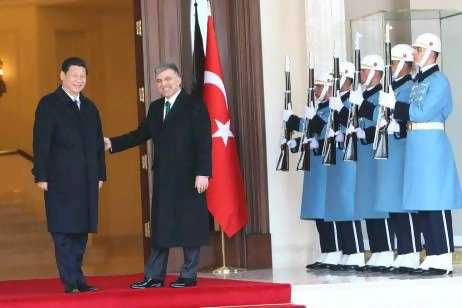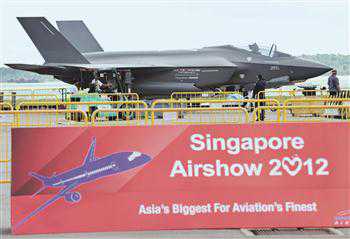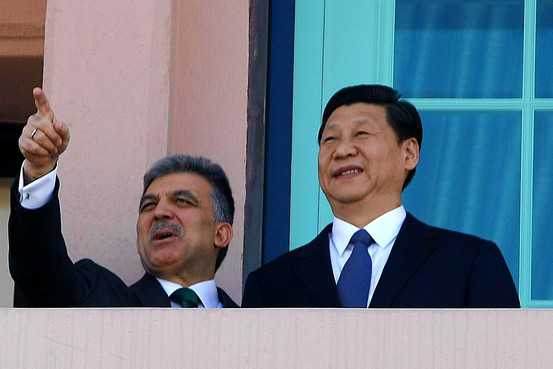Turkey has that most scarce, yet highly sought-after, attribute among European economies: growth. With this rising tide, is now the time for investors to be contemplating Turkey’s growing Internet economy?
Certainly the statistics look good. According to the European Union, Turkey’s real gross-domestic-product growth for 2010 was 9%, compared to just 2% for the 27 EU members. It is forecasting that growth for 2011 will be 7.5% against 1.9% for the EU.
Turkey has 35 million Internet users—out of a total population of around 77 million—70% of whom, according to research firm Comscore, are younger than 34. That makes the country the fifth-largest Internet audience in Europe. Those users are engaged, spending the third-longest time online in Europe, after the Netherlands and the U.K.
Turkey has also embraced social media: It is one of the top five audiences on Facebook and top 10 on Twitter. Furthermore, Turkey’s infrastructure is well developed. Credit-card penetration, at some 60%, is higher than the European average of 50%. Online retail is strong and growing fast.
And unlike in Russia, logistics and physical infrastructure are good. Thanks to heavy investment, communication links are good. The third-generation network, at least in major urban areas, is often faster than that found in many other European countries.
Toss into the pot a couple of major exits for Turkish start-ups (South Africa’s Naspers acquired a majority stake in Markafoni, an e-commerce site; eBay Inc. snapped up online marketplace GittiGidiyor and Amazon.com Inc. took a stake in flower retailer Çiçek Sepeti), and the arrival of the Russian search engine giant, Yandex, and the picture is starting to look pretty good. Is an online Anatolian Tiger starting to stir?
However, despite the recent panel at the Munich DLD conference hyping Turkey as a golden investment opportunity, the experience of attending the recent Startup Turkey conference in Antalya leads one to conclude that it’s a brave investor who jumps into the market right now.
Burak Buyukdemir, the conference organizer, says the Turkish Internet scene is still heavily dominated by copycat e-commerce sites. Of the 33 startups that made pitches at the conference, more than half were shopping sites of some sort, aimed at selling Turkish products to Turks living in Turkey.
Commentators often look down their noses at copycats, but they serve an important part in the development of the ecosystem. Entrepreneurs need to learn their craft. Taking a successful model and turning it into a Turkish equivalent is both safer—the model is proven—and faster.
Nor need they be unattractive to international investors, says Charles Irving of Pond Ventures. With about 80 million Turks world-wide, three million of whom live in Germany, it is possible to build a reasonably sized company that might make it onto the investors’ radar.
But, admits Ali Karabey, founder of Turkey’s newest venture-capital organization, 212 Ventures, problems still need to be overcome if the market is truly to take off. Investors only get their money back when a company is sold, and the exit route for Turkish companies isn’t that clear, he says. The public markets in Turkey aren’t really suitable for the size of Internet companies at the moment, so trade sales remain the most likely exit, and so far they have been to international companies, not local players.
Meanwhile, looming on the horizon is the threat to the emerging Internet scene from Rocket Internet, the startup factory founded by Germany’s Samwer Brothers. Its aggressive model of rolling out competitors is a worry for local players, says Hans-Jürgen Schmitz, the managing partner of Luxembourg-based Mangrove. He acknowledged that the prospect of a heavily funded Rocket site would certainly force him to look twice at opportunities in Turkey right now.
The other worry for Turkish investors, says local business angel Ömer Faruk Akarca, is the worrying valuations startups are trying to claim. There is a risk, he said, that Turkey could go straight from nascent scene to bubble without stopping in between. He called for some realism to be injected into the market. While investors weren’t being taken in by the numbers, he said, there was a risk that as Turkey’s profile raises ever higher, and more and more capital becomes available, that people will start to believe the valuations.
Despite all that, Turkey has certainly caught the eye of the investment community. That leading venture-capital company Accel Partners, an investor in Facebook, Groupon, Etsy and Spotify, decided to send two people to attend a conference of 300 Turkish startups shows how seriously the country is taken.
Nor should the threat from Rocket be exaggerated, cautioned Niels van der Linden, a Dutch adviser based in Istanbul: “Companies do not have a right to exist, and if Rocket can produce better companies, more quickly, then Turkish startups need to learn and adapt. Competition is good. At the moment the field is clear, but that will not last.”
With its impressive growth, its alignment with the European Union and its historic role as a bridge between east and west, Turkey is certainly a country of great opportunities. Fortune favors the brave, so for those willing to play a high-stakes game, get on the flight to Istanbul tomorrow. For everyone else, the tiger has just started to stir. Be there when it eventually wakes.
via Turkey’s Internet Tiger Shows Signs of Stirring – WSJ.com.




